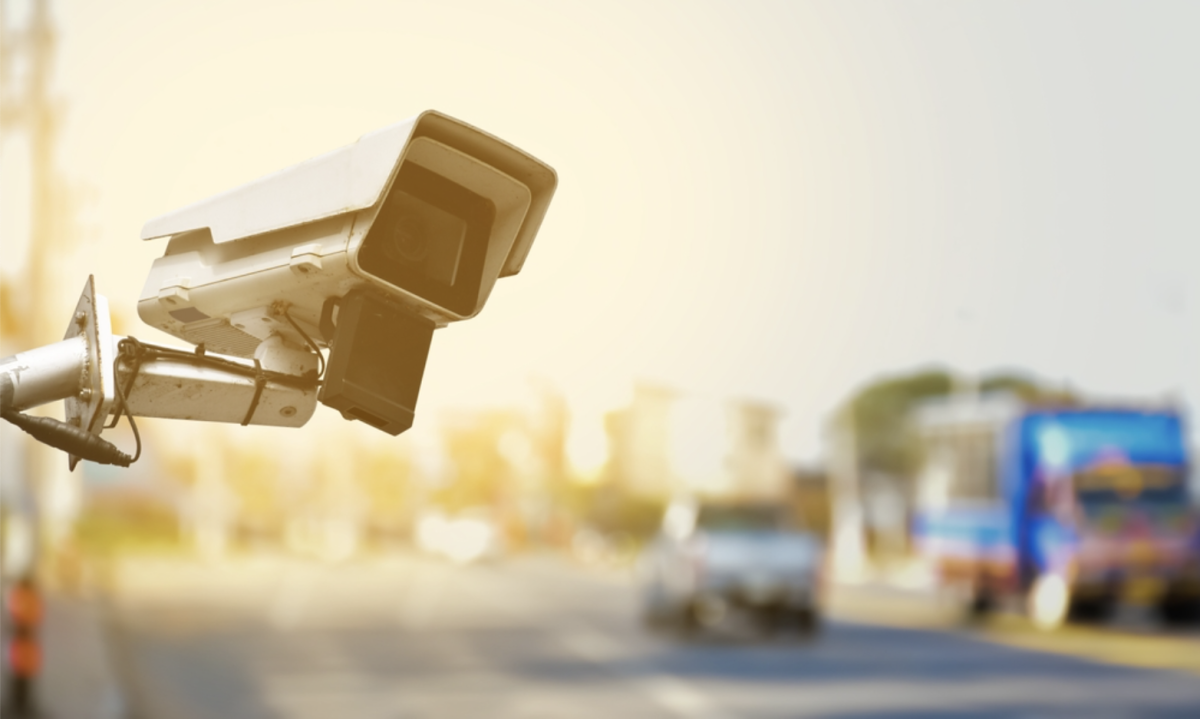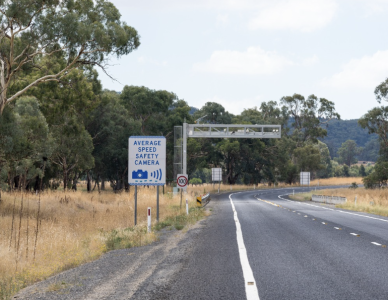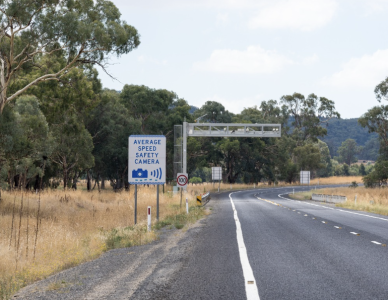
You’re certainly not alone if you’ve ever felt a twinge of frustration as you spot a speed camera lurking by the roadside.
Across Australia, these silent sentinels have become a familiar—and often controversial—part of our driving landscape.
But before you even think about taking matters into your own hands, be warned: interfering with these cameras could land you a hefty $2,500 fine or even a decade behind bars.
That’s the stern message from police after a recent incident in Adelaide’s Salisbury suburb, where construction equipment was brazenly used to block a speed camera’s view.
The footage, which quickly made the rounds online shows an excavator driver lifting the machine’s bucket to obscure the camera on busy Commercial Road.
While some bystanders found the stunt amusing—with one quipping, ‘He probably had a few fines and saw a way to stop it’—authorities are taking the matter very seriously.

Police have confirmed the incident is under investigation, and they’re reminding the public that tampering with or obstructing a speed camera is a criminal offence.
The penalties are no laughing matter: a $2,500 fine or up to 10 years in prison. That’s a steep price to pay for a moment of mischief.
Why are speed cameras so contentious?
It’s no secret that speed cameras are a hot topic among Australian drivers.
Collectively, these devices rake in hundreds of millions of dollars in fines each year, leading some to question whether they’re more about revenue-raising than road safety.
Social media is awash with rants about ‘robot snitches’ and ‘dibber-dobbing p***s,’ and every so often, a story surfaces about a camera being vandalised or knocked over—sometimes to the cheers of residents.
But road safety experts are quick to point out the bigger picture.
Will Golsby, general manager of external relations at the RAC, said these cameras are vital in fighting dangerous driving.
‘This type of technology can help save lives and stop serious injuries on our roads.’
And with Australia’s road toll rising, the need for effective enforcement has never been greater.
The risks of taking shortcuts
The recent Adelaide incident isn’t the first time someone has tried to outsmart the system.
Last year, a speed camera in Melbourne was defaced with red spray paint, and in Queensland, a mobile camera was photographed knocked over on the roadside.

While these acts might earn a few laughs online, they come with real legal and public safety risks.
Salisbury construction workers noted that while they never leave keys in their machines, some universal keys can start up the equipment, raising concerns about unauthorised use and potential accidents.
What does the law say?
In every state and territory, it’s illegal to interfere with traffic enforcement cameras.
This includes physically blocking, damaging, or tampering with the devices and using objects or substances (like spray paint) to obscure their lenses.
The penalties are severe for a reason: these cameras are there to deter speeding and dangerous driving, not to be outwitted by creative mischief.
Do speed cameras really work?
Despite the grumbling, the evidence is clear: speed cameras save lives. Studies consistently show that they reduce speeding and cut down on serious crashes.
Experts say the key is transparency and fairness—ensuring cameras are placed in high-risk areas, not just where they’ll catch the most drivers.
What should you do if you think a camera is unfair?
If you believe a speed camera has been unfairly placed or is malfunctioning, contact your local road authority or Ombudsman.
Taking matters into your own hands can lead to a criminal record and a much lighter wallet.
We know this topic gets people talking! Have you ever had a run-in with a speed camera, or do you think they’re a necessary evil for keeping our roads safe?
Do you feel they’re more about safety or revenue? Share your thoughts and stories in the comments below—we’d love to hear your perspective.







